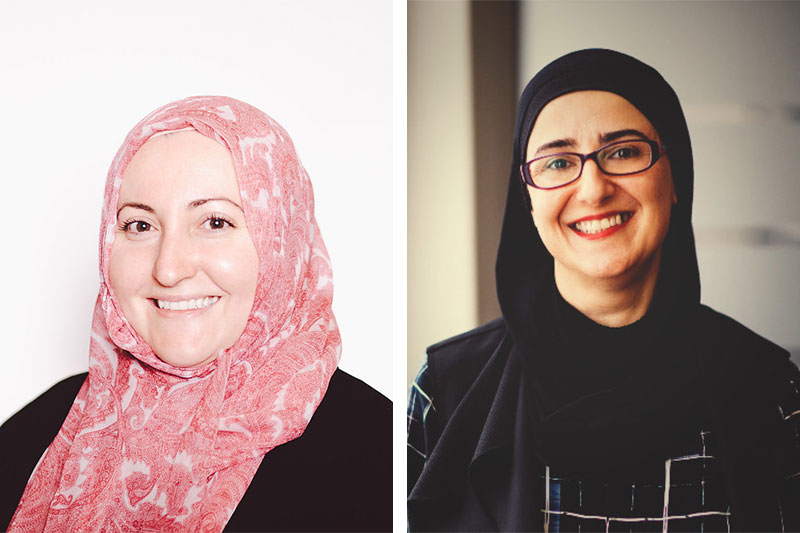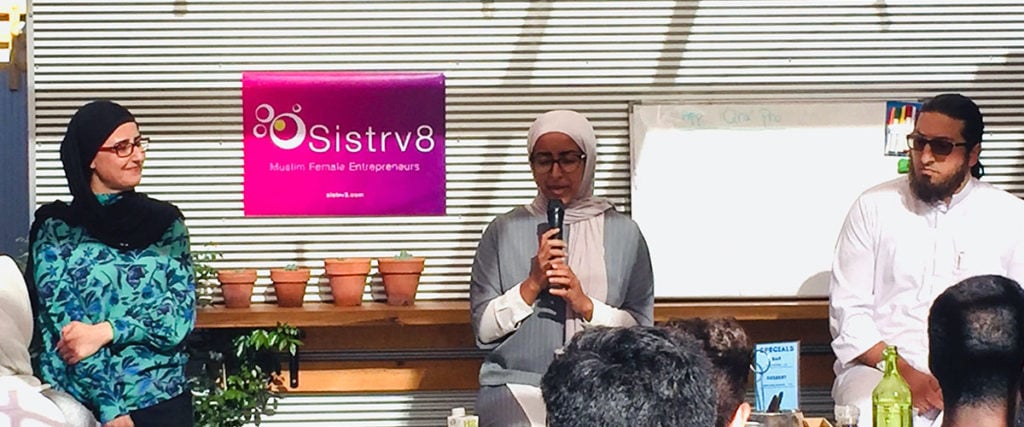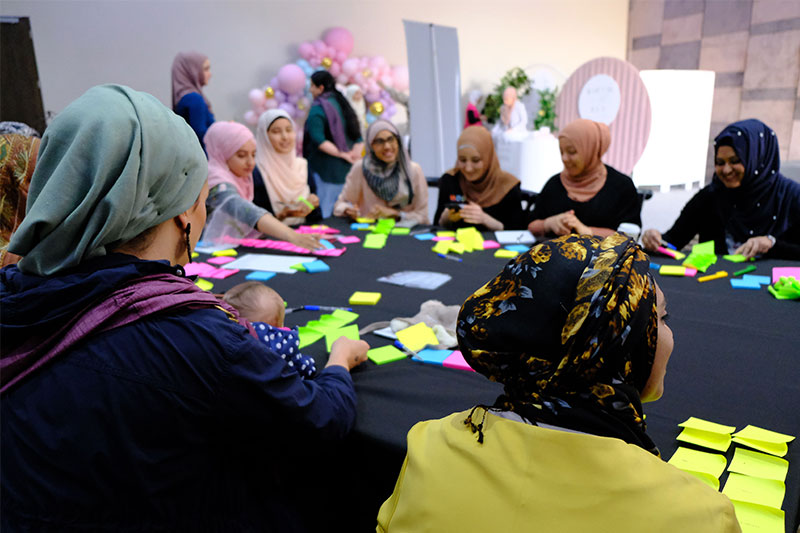Sistrv8 co-founders Sam Haouchar and Aisha Dani shed light on the biggest barriers that Muslim women face in entrepreneurship.
Founding a startup is hard – that’s a fact. But research shows that, for women, the struggle is all the more difficult. In 2019, for example, it was found that only 2% of global funding went to female-founded businesses, a clear indicator that women really do find it harder to access funding than their male counterparts. But for Muslim women, those barriers to becoming successful entrepreneurs are even higher. Not only do they need to consider funding options that align with Islamic principles, but they usually face additional hurdles when it comes to low financial literacy and are too often excluded from the conversation altogether. That’s where co-founders Sam Haouchar and Aisha Dani come in.
Founded in 2018, Sistrv8 is a Melbourne-based social startup dedicated to providing coaching to Muslim female entrepreneurs, creating an ecosystem for Muslim women to support and connect with each other, and empowering them to kickstart their startup journey. Sistrv8 co-founders Sam Haouchar and Aisha Dani chat through how they’re tackling the CALD (culturally and linguistically diverse) female entrepreneurial participation problem head-on and their 3 key strategies for creating a successful startup.

Take us back to when you met. What made you go into business together?
We met at the 2018 Strategyzer master class in Melbourne and immediately clicked. It is rare for two people with very similar passions, who understand entrepreneurship, startups and business models, and are Muslim women, to connect. We both have a passion for supporting the Muslim Ummah (the Islamic community) using what we know and what we are good at.
Tell us about Sistrv8.
The name Sistrv8 comes from the words ‘sister’ and ‘innovate’. Our company is targeted towards Muslim women, where we refer to each other as ‘Sister’, and we seek out women who value innovation. What we offer is different from what is currently available in the mainstream Muslim community in Australia, which usually centres around life coaching, motivational speaking, and developing an entrepreneurial mindset. Sistrv8 shifts the thinking to investment, to building the financial literacy and capabilities of Muslim women to start and scale through ideas, and to contribute to the economy through entrepreneurship. We are connecting the Muslim entrepreneurial ecosystem to the broader startup ecosystem.
What were some of the early challenges you faced and how did you overcome them?
In the beginning, Muslim female founders didn’t see the need for what we were offering, thinking that because their initiative was small, no financial or investment savviness was required. We know this isn’t true – most are just getting by, unaware of their profit margins and how they can run their ventures with more sustainable business models or even think in business model terms.
In the Muslim community, seed-stage funding is through personal connections and networks, which women don’t have access to. Our work is now focused on bridging this gap. Because this venture is a passion project, it doesn’t necessarily fit the typical mainstream startup model of scalability yet. Our business model is evolving as we trial programs and approaches and review the current trends in the startup ecosystem.
What gives us the motivation to keep going is knowing that the tiny things we do make a difference to others. This is our passion – we truly believe we are solving a well-defined problem. We also love interacting with our community and building the community!
What are the 3 key strategies for creating a successful startup?
Most emerging startups struggle with a poorly defined desirability quadrant: the match between the value proposition and the customer segment. Those starting out need to take an experimental and evidence-based approach. They also need to be super comfortable with ambiguity and uncertainty – founders will not always have enough information to make ‘perfect’ decisions. This is a tremendous mental shift for those that think in linear steps and are risk-averse. We see this preponderance with female founders, which we believe is born out of an educational setting that fosters a causation type of mentality (e.g. “If you do this, then you will get that”). Entrepreneurship is more organic and more fluid than that. We would also highly recommend you take a hyper-local approach: think of pressing problems in your own local community and build out from there.
As for those that have gained traction with their startup where they already have validated proof of concept with their product or service, we recommend seeking additional help through partnerships or entering an accelerator to scale up. Unless the technical expertise exists in the founding team, they will find that they can’t go at it alone for too long.
In all cases, be honest with what you’re bringing to the table. Does the world really need a different shade of foundation or another type of modest dress? Is this the most pressing problem for humanity? Be honest about your motivations – being an ‘influencer’ and a motivational speaker/coach is not an entrepreneurial or startup venture; it is a byproduct of addressing a real-world problem. Success is not defined by the number of followers on Instagram; seek other metrics to measure success or impact.
What is your advice for female entrepreneurs?
We’ve found that there is a severe lack of startup knowledge amongst female entrepreneurs. Our advice is to read up, do as many free online courses as possible, and attend 2-3 pitch nights to get the idea of what the startup space is like.
Female founders also don’t have a lot of confidence or conviction compared to their male counterparts. This can be overcome by partnering up with a co-founder. One of the most important things we keep highlighting to founders is to find a partner – Sistrv8 has only come this far because we’ve recognised that we need to work with someone else to keep the momentum going and to have accountability. This journey is long and you need a friend to share the load.
We’d also recommend that you don’t become too attached to your idea and not to keep it secret or hidden unless it needs to be trademarked. A community or tribe needs to engage with your product or service to figure out if there is value in it.
Finally, just go out there and experiment! Don’t be afraid to fail forwards and make sure to learn from your mistakes.
Related Articles
Sextech: How is Technology Changing Sex, Intimacy and Shame?
The New Savvy Empowers 100M Women To Gain Financial Independence
Powerpants by Bham: Australian Social Enterprise Takes a Stand Against Gender Violence






